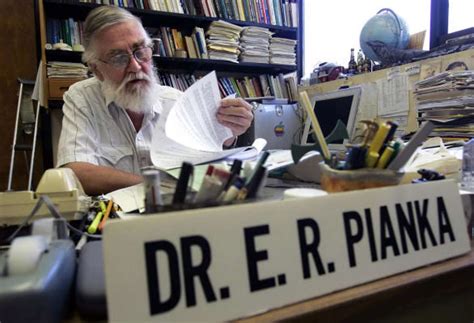A Quote by Ben Sweetland
Wonder if there is life on another planet? Let's suppose there is. Suppose further, that only one star in a trillion has a planet that could support life. If that were the case, then there would be at least 100 million planets that harbored life.
Related Quotes
I often wonder: suppose we could begin life over again, knowing what we were doing? Suppose we could use one life, already ended, as a sort of rough draft for another? I think that every one of us would try, more than anything else, not to repeat himself, at the very least he would rearrange his manner of life, he would make sure of rooms like these, with flowers and light ... I have a wife and two daughters, my wife's health is delicate and so on and so on, and if I had to begin life all over again I would not marry. ... No, no!
I keep wondering if, say, there is intelligent life on other planets, the scientists argue that something like two percent of the other planets have the conditions, the physical conditions, to support life in the way it happened here, did Christ visit each and every planet, go through the same routine, the Agony in the Garden, the Crucifixion, and so on.
Most Jupiter-sized planets orbit the mother star in a highly elliptical orbit. This means they will often cross the orbit of any Earth-like planet and fling it into outer space, making life impossible. But our Jupiter travels in a near-perfect circular orbit, preventing a collision with any Earth-like planet, making life possible.
Four elements, Hydrogen, carbon, oxygen and nitrogen, also provide an example of the astonishing togetherness of our universe. They make up the "organic" molecules that constitute living organisms on a planet, and the nuclei of these same elements interact to generate the light of its star. Then the organisms on the planet come to depend wholly on that starlight, as they must if life is to persist. So it is that all life on the Earth runs on sunlight. [Referring to photosynthesis]
The fact that this chain of life existed [at volcanic vents on the seafloor] in the black cold of the deep sea and was utterly independent of sunlight - previously thought to be the font of all Earth's life - has startling ramifications. If life could flourish there, nurtured by a complex chemical process based on geothermal heat, then life could exist under similar conditions on planets far removed from the nurturing light of our parent star, the Sun.


































